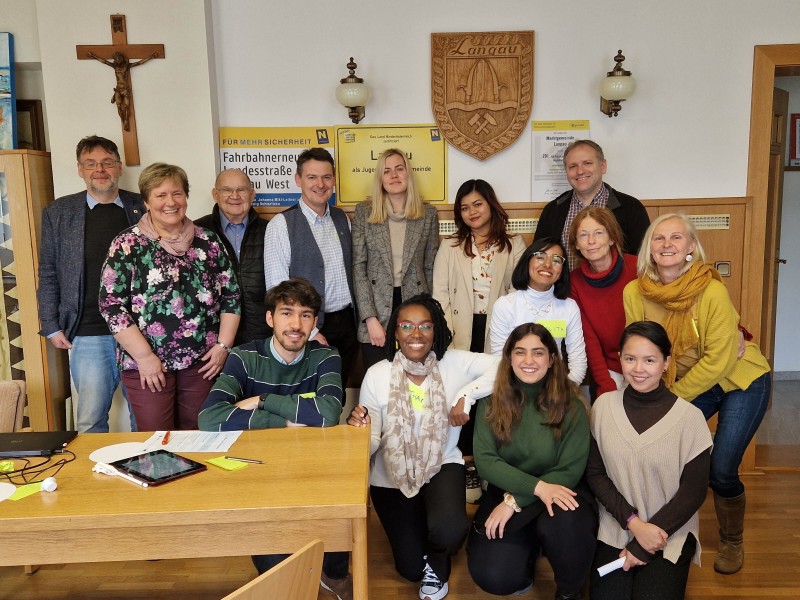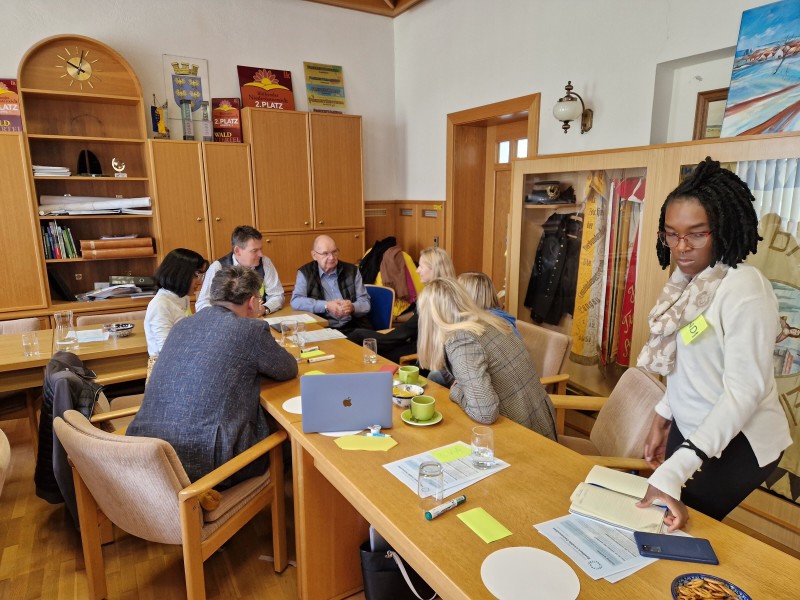News Details

KLI postdoc fellow Marina Knickel was invited as a scientific expert to the Transdisciplinary Stakeholder Conference on Resilient Livable Communities in the small rural community of Langau in northern Lower Austria. Marina is a social scientist and expert on learning and collaboration processes in transdisciplinary research in the agri-food context. The conference was organised by students of the TISE (Transition, Innovation, and Sustainability Environments) Erasmus Mundus Masters programme at the University for Continuing Education Krems, a programme focusing on sustainable and resilient societal, economic and industry processes and structures. The aim of this conference was to bring together scientists and practitioners to discuss complex challenges that the Langau community is facing as well as to explore the community’s capacity for resilience and sustainability amidst crises and to foster mutual learning between science and society.
The TISE Masters students kicked off the discussion with a preliminary guiding question “How can the Social, Institutional Systems of Langau become resilient & sustainable amidst polycrises in the next 20 years, with the example of pandemics?”. A stimulating exchange between diverse conference participants allowed the students to refine the question into “How can the community actors of Langau improve the adaptive capacity of its social infrastructure in the next 20 years?“ Drawing on the conference results, the students further developed three scenarios on the vulnerability of Langau to specific factors. The three threat scenarios included a health crisis, societal breakdown, and economic downturn.
Based on this collaborative process, the students will construct potential intervention strategies, which the experts will assess as to whether and how the risks are reduced by the set of measures. The next step of the analysis will be elaborating “socially robust orientations” (SOROs), which are meant to outline strengths and weaknesses in dealing with threats, and to reflect on the improvement of SOROs.

Conference participants discussing key social and environmental challenges of the Langau community and the relevance of the preliminary guiding question.
Read more about Marina Knickel’s research here.

